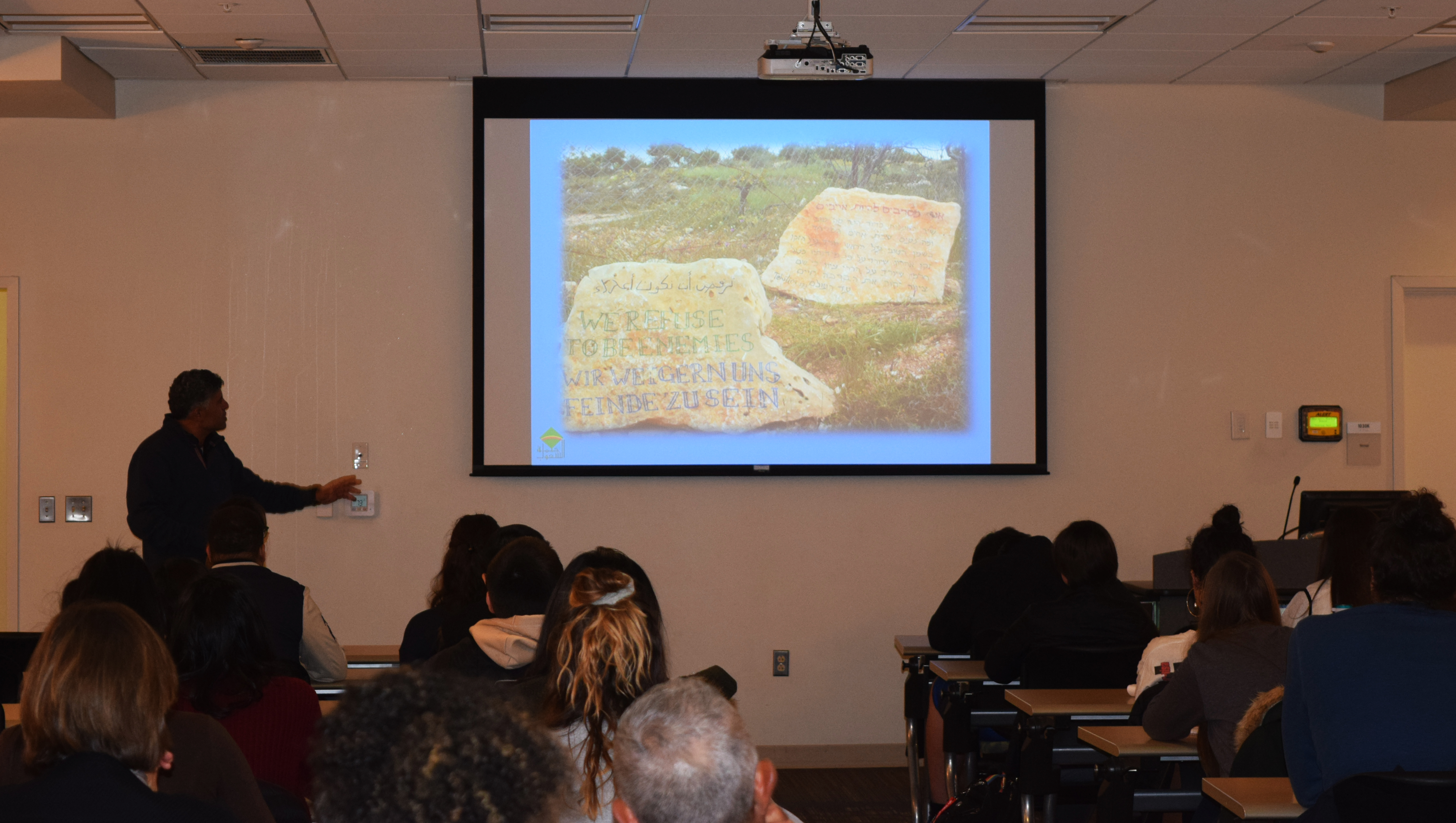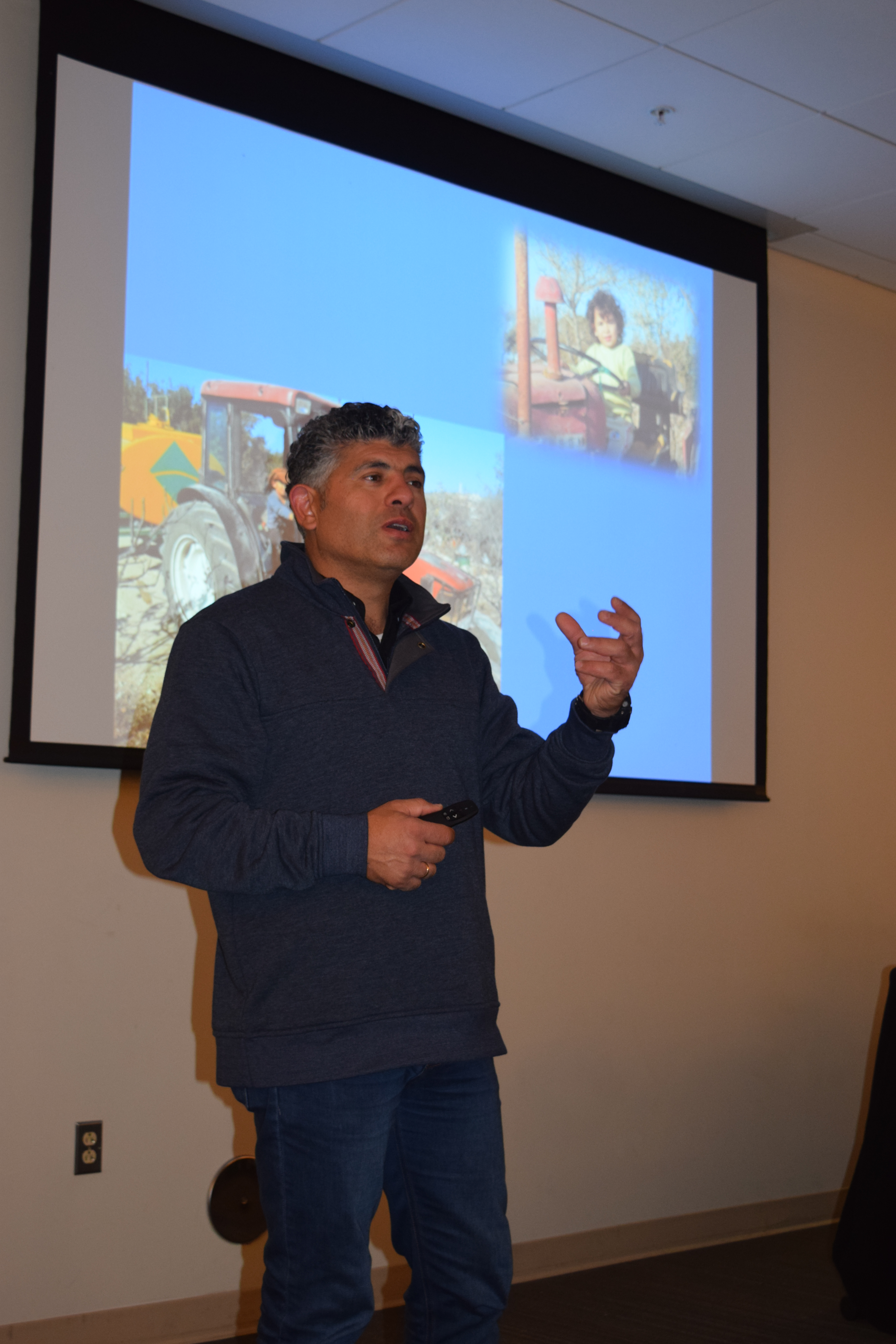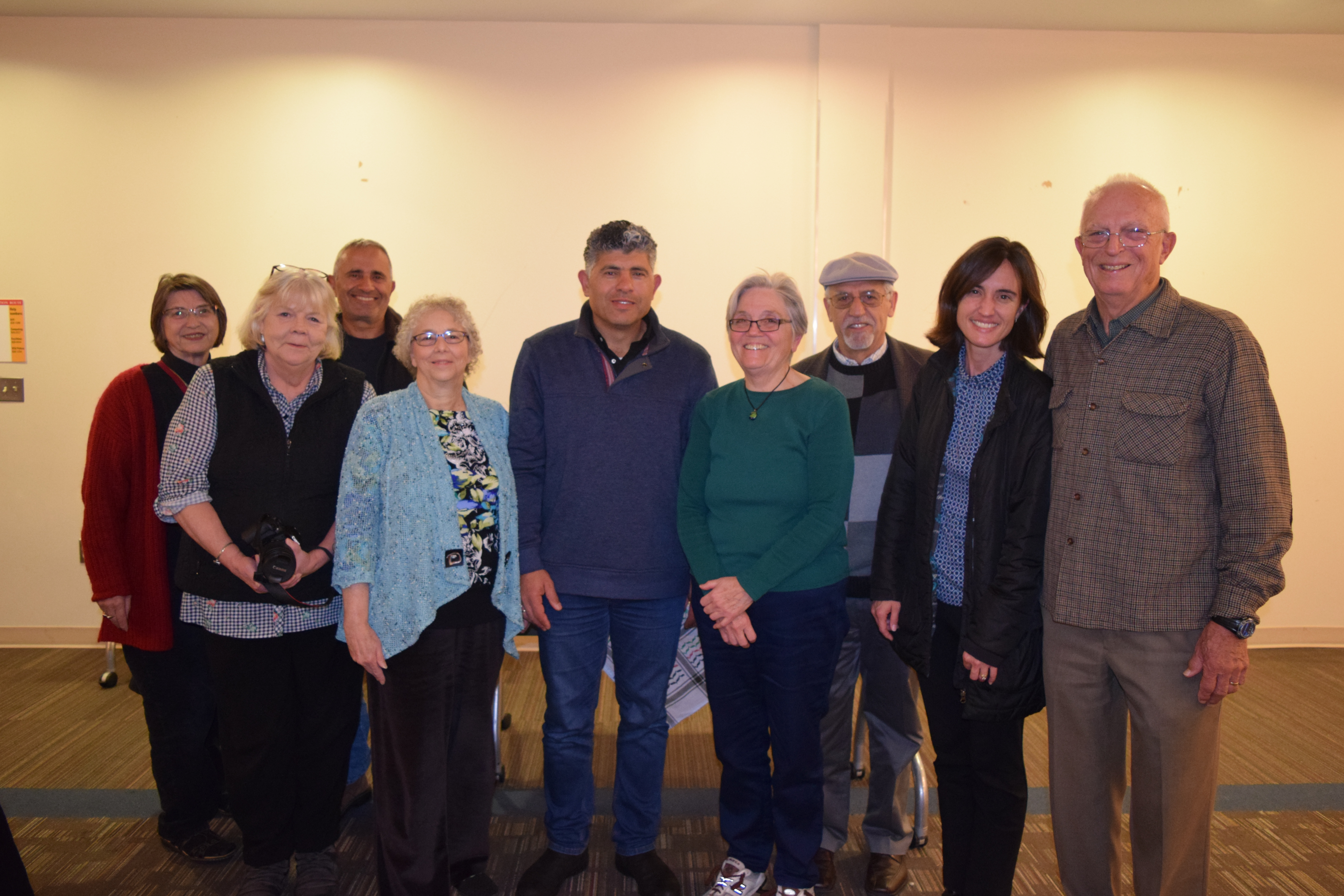December 6, 2018

Refusing to be enemies
By: Nicol Tinsley
Global Education Office
(804) 828-6463
nctinsley@vcu.edu

RICHMOND, Va. (Dec. 6, 2018) —In today’s world of discord and strife, the message of practicing non-violence as a way to establish peace is not always prevalent. But Director of Tent of Nations Daoud Nassar, brought that very message to VCU recently, offering insight about the fight for land ownership that his family has endured for 27 years, and the principles of non-violence, love and faith that guide them through the difficult battles.
Nassar Family Land Ownership
The Nassar family is the last in the West Bank holding on to the ownership of their farmland that they have owned for more than 100 years. Nassar began the lecture with an extensive background of the political and historical events that have brought his family to the situation they face today. Describing military and civil control over the Palestinian territories and explaining that it is currently impossible to have an independent state
“Now, the biggest obstacle today is still land confiscation and the building of settlements that are illegal according to the international law,” he said.
Nassar’s grandfather purchased the land in 1916 and carefully preserved legal documents proving ownership, and he gave a full account of the attempted confiscation of that land by the Israeli government and military.

Nassar tells of his family’s decades-long struggle for justice.
Legal, Financial and Physical Persecution
Besides having to fight to retain the land legally, the family has also experienced physical and financial pressure and isolation.
Nassar spoke of the group of settlers who came to the West Bank for ideological reasons, believing it is their land. “This group put us under physical pressure and started attacking us. They cut our trees, they threatened us and they tried to build roads on our property,” he said.
Utilizing the court system again, the family’s attempt to stop these harassing actions brought dire consequences.
“The settlers were very angry and destroyed 250 olive trees, as well as fruit trees on our farm.”
The family has been able to rebuild with assistance. Upon hearing of this destruction, a Jewish organization from the UK sponsored 250 olive trees, arriving to help plant them on the land
“It was a positive sign for us,” Nassar said. “There are people who are supporting us, not just by words but also by actions, and this is very important for us.”
Nassar described how his family has endured so many years of this type of persecution. He explained how they have plowed new fields and cultivated new land, only to have demolition orders presented by the Israeli authorities, claiming the trees were planted on ‘state land.’
This cycle of destruction and court appeals is the reason the battle has occurred for so many years, but the Nassar family is determined to overcome the setbacks and to rebuild and sustain their farm.
“We cannot stay in that circle of frustration, because it's easy to hate and to get frustrated. But in order to invest our energy in a positive way, we managed to repair the terraces, and we planted new trees,” said Nassar.
Normal Reactions to Persecution
Nassar related his family’s situation to others, noting that his family is not the only one. He spoke of how people who are living in a “difficult political reality” or being provoked by violence, may have no hope for the future. These types of situations may cause three specific, normal options for reactions.
“The first option is violence,” he said. “But we said to ourselves ‘no’ to this first option, because with violence people will create more violence.”
The second option is to accept the unjust situation, which Nassar said they did not want to do. “By accepting it we might become victims, sitting down and crying. And it's dangerous to become a victim,” he said.
The third option that Nassar pinpointed is to just run away. His family does not favor this option either.
“By running away, we might feel defeated by our own challenges,” he said.
The family’s decision was to stay and face the challenges, in a way totally different from the three options.
Four Principles to Build Faith
The family chose to deal with challenges in a “fourth way,” based on four principles they have adopted.
The first is to refuse to become victims. “It is important for us to stand up, refusing to be victims in order to start acting instead of reacting, and to start acting in a different way,” he said.
“Secondly, we refuse to hate he said. ”
“Refusing to hate means believing that in every human being there is something positive and something negative. The positive things we want to respect and the negative things we won't accept.”
He explained how their principles require distinguishing between people and their bad actions.
“We respect the people as people, but we do not accept their bad actions. So we need to stand up for our rights and tell the other that what they are doing is unjust,” he said.
The third principle is to “act differently” and to focus on practicing nonviolent resistance. Nassar said faith and belief in this principle have allowed them to adopt non-violence as a way of life and is necessary in order to continue on this track.
“Fourthly, we are people who believe in justice,” he said. Knowing that the path for justice is difficult and it may take a long period of time to resolve, the family feels that justice will prevail in the end.
“And the fourth way is based on overcoming the negatives with positives; hatred with love, and darkness with light. Our slogan is: ‘We refuse to be enemies.’”

Director of Tent of Nations Daoud Nassar (fifth from left) with Friends of Tent of Nations North America and VCU staff.
Refusing to be Enemies
Nassar admits that this slogan offers confusion and disbelief, knowing that some people may not understand the meaning or reason behind it. Placed at the entrance of the farm is a stone that has the slogan on it. “This is a way to raise questions in order to understand why we believe in this way of nonviolent resistance,” he said.
From there, the name of the farm became “The Tent of Nations Farm,” which is added under the slogan on the stone.
Even though the legal battles have spanned 27 years to this present day, Nassar says his family still believes in justice, although it seems unjust for them. They are committed to making the farm accessible to all and welcome visitors. Their main objective is to have others see that they are people just like them and not an enemy.
“The best thing to do is to open the farm for people to come and see, and go and tell. This is an open invitation to Israeli people and to Jewish people. Because when people live separated from each other, the only image that exists is of an enemy,” he explained.
Nassar stressed that bringing others to view the farm is his family’s way of trying to achieve meaningful results with their principle of nonviolent resistance. “It’s important to build the bridge of understanding; it is the first step towards peace,” he said.